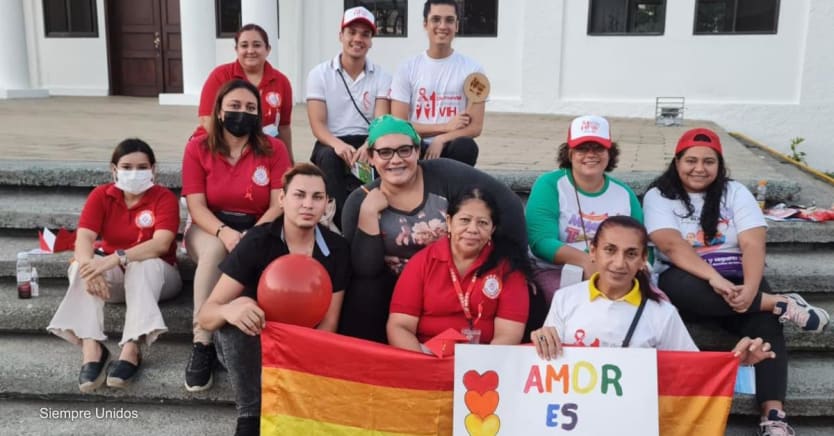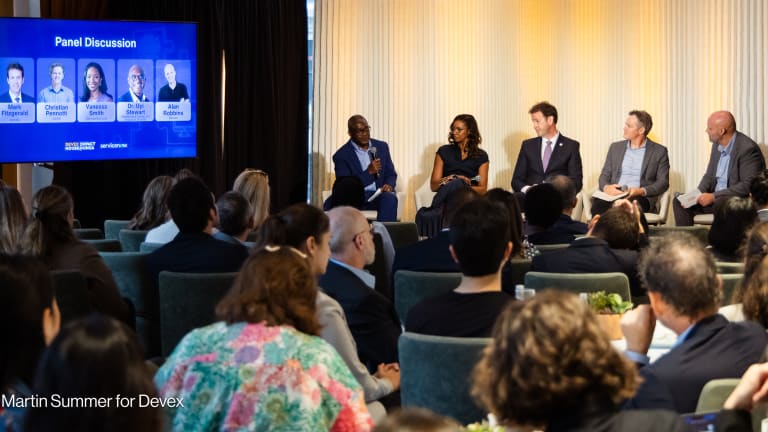
“Reaching the most vulnerable.”
This is a phrase we hear regularly in the development sector. We use the language of vulnerability a lot. Project proposals identify the poorest of the poor, the neediest, and those most in need of protection. We categorize groups as worthy of a particular service or intervention because the system is not reaching them. In other words, we strive to reach the most vulnerable.
Generally, development professionals understand that words are important, and that language is imperfect and can be biased. We embrace the concepts of social inclusion, eschewing nomenclature that removes agency or infers judgment. Most of us would never want the people we are supporting to think of themselves as vulnerable, and we would never use that word directly when speaking to a program participant.
And as a study uncovered in 2019, broad use of the phrase, in many instances, actually leads to the exclusion of underrepresented groups or one-size-fits-all approaches that do not account for different types of vulnerability and need, rendering them exclusive.
[Siempre Unidos’] lens of dignity for all allows them to be in prisons and red-light districts, as well as in meetings with government officials.
—And yet the phrase persists.
But more than just removing agency, the lens of vulnerability fails to acknowledge an often-simultaneously present resilience. Similarly, we can overlook the wounds that can be present in those traditionally considered powerful. This oversight can contribute to reductionist thinking that ultimately impedes impact.
Vulnerability and program impact
Episcopal Relief & Development has invested in Siempre Unidos — Always United — in Honduras for over 15 years. Siempre Unidos’ Siloe project supports and upholds the dignity of commercial sex workers, people who identify as LGBTQ+, those living with HIV or AIDS, people living in slums, those who are incarcerated, and ethnic minority communities. The project provides health and human rights education, psychosocial support and pastoral care, testing for sexually transmitted diseases, as well as treatment and material support for commercial sex workers. Siloe also aims to prevent sexual and gender-based violence through awareness education for youth and those in positions of authority including members of law enforcement, correctional officers, prosecutors, and the military. In this work, Siempre Unidos not only engages those who are perceived as the most vulnerable, but they also work closely with people who are considered the most powerful.
Siempre Unidos understands that exclusively centering those traditionally considered vulnerable would limit their program impact. Their lens of dignity for all allows them to be in prisons and red-light districts, as well as in meetings with government officials. They also recognize the agency, expertise, and knowledge of “the most vulnerable” and adapt their programming in response to their voiced priorities. They demonstrate the necessity of an ecosystem approach.
In a project such as Siloe, those on the ground have pushed beyond a common understanding of the binary definitions of the vulnerable and the perpetrators. Police officers are not generally among those considered “vulnerable” and yet, they can be both agents of positive change and barriers to progress. Furthermore, Siempre Unidos recognizes their vulnerability as well as their power and designs interventions that address the interconnection between the officers’ own trauma — as survivors and perpetrators of violence —, sense of risk and vulnerability, and how their realities can be wielded for abuse or positive use of power.
The layers of marginalization
As a faith-based organization, Episcopal Relief & Development is committed to our mission to respect the dignity of every human being. The integrated approach of our work in the areas of climate resilience, reducing gender-based violence, early childhood education, and disaster response, requires us to wrestle with systems and language that reinforce structural inequality.
As we launch new gender and climate strategies, we are deeply committed to concepts and language that center on dignity, agency, and asset-based community development. We have learned from our partners around the globe, from Brazil to Burundi and Sri Lanka to El Salvador, that the language of vulnerability can lessen the impact as it doesn’t account for the contexts and systems that render people vulnerable; it can inhibit us from considering those with power — real or perceived — in our interventions and stifles the powerful role that they should play in defining the program response. To understand individual players and how they are interconnected, we can’t solely use a lens of vulnerability.
In their 2018 paper, Why Marginalization, Not Vulnerability, Can Best Identify People in Need of Special Medical and Nutrition Care, Alexis K. Walker, Ph.D., and Elizabeth L. Fox, Ph.D., argue that identifying marginalized groups as vulnerable can be inadequate and, at worst, stigmatizing and unfair. Health care interventions, including those addressing food insecurity, could benefit from considering the multiple layers of a person’s life that reflect social marginalization.
More and more the teams at Episcopal Relief & Development are speaking about the layers of marginalization that wound individuals and communities and the points of intersection requiring agency and inclusion. In Liberia, for example, a faith-based intervention in response to violence against women and girls identified the power of Christian and Muslim youth to identify abuses in schools and advocate for codes of conduct and accountability for educators. We are deepening our understanding of harnessing power from the margins where we once just saw vulnerability.
Women Deliver 2023 Conference
Next week, in Kigali, Rwanda, Episcopal Relief & Development together with our implementing partners the Episcopal Church of Liberia Relief & Development, the Dioceses of Bukavu and Aru in the Democratic Republic of Congo, and Service Anglican pour le Développement Communautaire in Burundi, will join an estimated 6,000 people at the Women Deliver 2023 Conference.
The Conference has five objectives, including reframing who leads by centering grassroots organizations, youth, communities facing systemic discrimination, advocates, and changemakers working on the ground.
As we wrestle with the big questions in Kigali, the Siloe team will be making their rounds in their white van providing food, condoms, counsel, and an open heart and a listening ear to commercial sex workers and others fending for themselves on the streets. Our role is to follow their lead.
If you are attending the Women Deliver 2023 Conference, we’d love to talk with you more about the language of vulnerability and how it impacts agency, resilience, access, participation, and decision-making. Please come find us at the Episcopal Relief & Development booth, K91, in the Exhibition Village.









